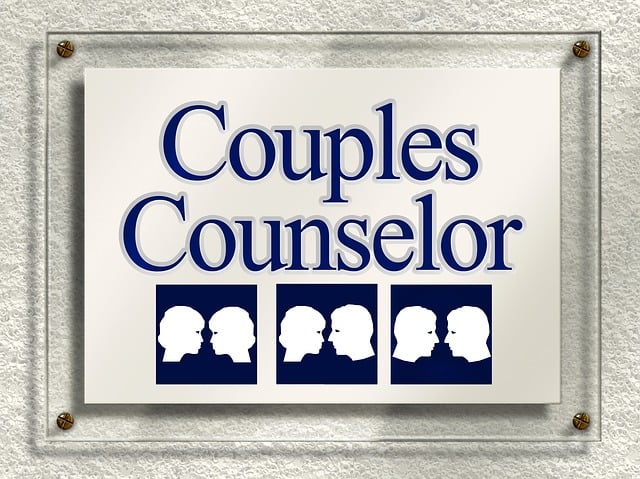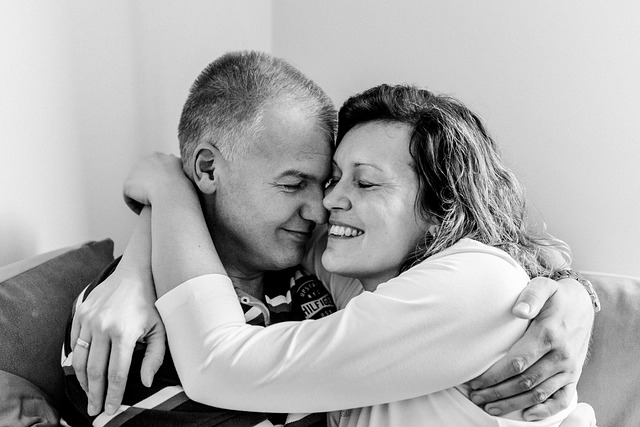Couples counseling through emotion-focused therapy (EFT) addresses emotional issues at the heart of relationship problems. By fostering open communication, empathy, and understanding, EFT helps partners manage their emotions healthily, leading to lasting changes and improved satisfaction. This collaborative process strengthens bonds, enhances conflict resolution, and builds resilience in partnerships, ultimately fostering deeper intimacy and a more harmonious relationship.
Emotion-focused therapy (EFT) has emerged as a powerful tool in couples counseling, transforming the way partners navigate their relationships. This therapeutic approach recognizes that emotions are integral to relationship dynamics, offering a path to deeper connection and understanding. By exploring and expressing feelings effectively, couples can enhance communication, foster empathy, and overcome defensiveness. EFT provides practical strategies for building emotional intimacy, ultimately leading to improved satisfaction and growth in the relationship.
Understanding Emotion-Focused Therapy for Couples

Emotion-focused therapy for couples (EFT) is a highly effective form of couples counseling that helps partners understand and manage their emotions in a healthy way. This therapeutic approach recognizes that emotional issues are at the heart of many relationship problems, and by addressing these, lasting changes can be achieved. EFT encourages open communication, where each partner shares and listens to the other’s feelings, fostering an environment of empathy and connection.
Through this process, couples learn to identify and express their emotions, as well as develop strategies to respond to each other’s emotional needs. By understanding and validating one another’s emotional experiences, partners can strengthen their bond and improve their overall relationship satisfaction. EFT is a collaborative effort, aiming to empower the couple to make positive changes together, fostering resilience and deeper intimacy in their partnership.
The Role of Emotions in Relationship Dynamics

In the realm of couples counseling, understanding and addressing emotions is a game-changer. Emotions play a pivotal role in shaping relationship dynamics; they can either bring partners closer or create barriers. When left unprocessed, negative emotions like anger, sadness, or fear can fester, leading to communication breakdowns and increased conflict within the couple. On the flip side, positive emotions can foster intimacy, trust, and a deeper connection. Emotion-focused therapy recognizes this dynamic and aims to help couples identify, express, and regulate their emotions in healthy ways, thereby enhancing their bond.
By creating a safe and non-judgmental space, therapists facilitate open conversations about emotional experiences. This process encourages partners to listen to each other’s perspectives, empathize with their feelings, and respond in constructive manners. Through this emotional exploration, couples can gain valuable insights into their relationship patterns, resolve underlying issues, and develop more adaptive coping strategies. Such efforts ultimately strengthen their emotional connection, leading to a more fulfilling and harmonious union.
Identifying and Expressing Emotions Effectively

In emotion-focused therapy for couples, identifying and expressing emotions effectively is a cornerstone of successful counseling. Many couples struggle to communicate their feelings honestly and openly, often due to fear of judgment or past experiences that have led them to suppress emotions. Counselors play a vital role in creating a safe space where each partner can identify and verbalize their emotions without consequence. This process involves active listening, empathy, and encouragement from the therapist, which enables couples to gain deeper insights into each other’s perspectives and feelings.
Effective emotional expression goes beyond simply sharing feelings; it also entails recognizing and validating each other’s experiences. In couples counseling, partners learn to reflect on their emotions, understand their triggers, and express them in a constructive manner. This enhanced emotional awareness fosters better understanding, strengthens the bond between partners, and paves the way for more meaningful conflict resolution and relationship growth.
Enhancing Communication through Emotional Awareness

In couples counseling, emotion-focused therapy places a strong emphasis on enhancing communication through emotional awareness. This involves helping partners to identify and understand their own emotions as well as those of their significant other. By fostering an environment where sharing feelings is safe and encouraged, therapists facilitate deeper connections between the couple. With improved emotional literacy, individuals become more adept at expressing their needs, desires, and fears openly, reducing misunderstandings and conflicts that often arise from unspoken or miscommunicated emotions.
Emotional awareness also enables couples to navigate challenging conversations with empathy and compassion. Recognizing and validating each other’s feelings allows partners to approach disputes as opportunities for growth rather than threats. This shift in perspective fosters a more supportive and nurturing dynamic, enhancing the overall health of the relationship. Through this process, couples counseling aims to transform negative communication patterns into constructive dialogues, ultimately strengthening the bond between the two individuals.
Strategies for Building Emotional Connection

In emotion-focused therapy for couples, building emotional connection is a cornerstone of successful counseling. Therapists help partners cultivate an environment where each can express their feelings openly and authentically. This involves active listening, empathy, and validation—skills that encourage vulnerability and strengthen the bond between them. During sessions, the therapist might guide conversations that explore each partner’s emotions, helping them understand and appreciate one another’s perspectives.
Through techniques like reflecting feelings, couples learn to recognize and reciprocate each other’s emotional cues. This deeper understanding fosters a sense of closeness and intimacy, addressing underlying issues that may have contributed to relationship challenges. By creating a safe space for emotional expression, couples counseling enables partners to build a more resilient and fulfilling connection, enhancing their overall well-being and relationship satisfaction.
Overcoming Defensiveness and Promoting Empathy

In emotion-focused therapy for couples, one of the key challenges is overcoming defensiveness. Defensiveness often arises when partners feel attacked or threatened by each other’s emotions and experiences. It can lead to a breakdown in communication, making it difficult for the couple to connect and resolve issues. Therapists help partners identify and challenge their defensive responses, fostering an environment of safety where they can express their feelings openly.
Promoting empathy is another vital aspect of this process. Empathy involves understanding and sharing your partner’s feelings, which strengthens the emotional bond between them. Through active listening and reflective techniques, couples counseling helps partners recognize and validate each other’s emotions, leading to deeper connections and improved conflict resolution skills. This, in turn, enhances their overall satisfaction and resilience as a couple.
Measuring Success and Continued Growth

Measuring success in emotion-focused therapy for couples goes beyond simply achieving immediate resolution of conflicts. It’s about tracking sustained improvements in emotional connection, communication, and conflict resolution skills over time. Effective couples counseling fosters growth by empowering partners to identify and express their emotions healthily, improve active listening, and develop empathy for each other.
Continued growth is assessed through regular check-ins during and after therapy. These sessions allow therapists to gauge progress, revisit goals, and adjust strategies as needed. Through open dialogue, couples can reflect on their experiences, recognize patterns, and celebrate milestones in their emotional journey. This iterative process ensures that the benefits of counseling extend beyond the therapy room, fostering stronger, more resilient relationships.
